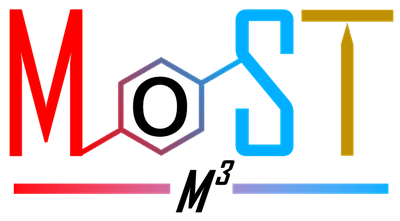Scope and Main Objectives
This workshop on Molecular-Scale Thermoelectricity focuses on communicating the latest discoveries, exchanging ideas and developing networks within the molecular-electronics community. World leaders in theory of molecular transport, chemical synthesis of organic molecules and experiments on functional devices will present their work, with a focus on thermal and thermoelectric properties of individual molecules as well as self-assembled monolayers of these molecules. A symbiosis of theory, synthesis, measurement and device design is required to understand and design functional molecules with desirable thermoelectric properties for future applications.
Using thermoelectric materials to generate electricity from waste heat could be a sustainable way to tackle many environmental problems provided that materials with high Seebeck coefficient (a measure of how much voltage is generated per unit of temperature gradient) can be found. Demand for thermoelectric materials with the desired properties has triggered interest in organic molecules as it has been shown that room-temperature destructive quantum interference effects in organic molecules can be exploited to tailor the thermoelectric properties. The Seebeck coefficient S is inversely proportional to the conductance G of the molecules and scales with the slope of the transmission function at the Fermi level. The slope is steeper for molecules exhibiting quantum interference. However, the thermoelectric figure of merit ZT=GS2T/k , where T is the temperature and k = kp+ke is the sum of thermal conductances by phonons and electrons, respectively. It is therefore necessary to optimise all these components in order to be able to design functional devices.
It is thus desirable to strengthen inter-disciplinary interactions between theoreticians, chemists and experimentalists in order to tackle these obstacles. Bringing world experts from these disciplines together in one place will greatly stimulate the field. The workshop is also the first conference dedicated to this subject and may thus shape future research on this topic.
Topics:
- Conduction and thermoelectric properties of individual molecules and self-assembled monolayers contacted with scanning probes or bulk electrodes.
- Theory of electrical and phonon transport through molecules.
- Chemical synthesis of novel functional molecules.
Registration:
Please register as soon as possible as the number of places is limited to 100. After June 1st, 2019, the price will increase from £150 to £200. Registration closes on 12th August, 2019. Please email jg857@cam.ac.uk to submit your abstract using this template.
Venue:
The workshop will take place at Selwyn College of the University of Cambridge located close to the historical centre of the city. For information on how to get to Cambridge see here. Accommodation (bed and breakfast) in the college can be booked when registering for the workshop. There will be no dinner served at the College on Tuesday night. There will be a banquet on the Wednesday evening.
Conference photo:

